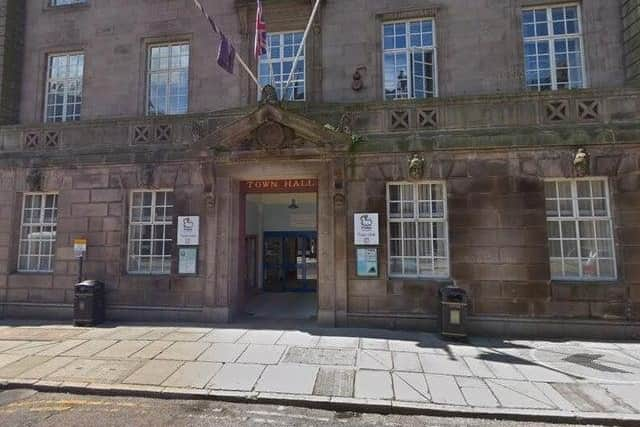Preston leader: 'Government must give us what we need to get over Covid'
and live on Freeview channel 276
Matthew Brown was speaking at a meeting of the full council which heard that the authority was forecasting a loss of more than £1m in income from fees and charges – such as car parking – this year alone.
A mid-year update on the town hall’s finances revealed that the council will have to find an additional £1.75m in savings by 2023/24 and will be drawing £3.3m more from its reserves over that period than was planned back in February.
Advertisement
Hide AdAdvertisement
Hide AdPapers presented to the meeting state that Covid will represent a “significant level of risk” to the authority over a number of years – but that it is “too early to realistically forecast the full impact”.


The number of people requiring council tax support has increased during the course of the year and collection rates have also fallen, as household incomes have been hit by the pandemic.
“We have been through a collective trauma – [and] the system has to change,” Cllr Brown said.
“This is the opportunity to build something better back. The government must give us the money we need and deserve to actually take Preston forward,” the Labour leader added.
Advertisement
Hide AdAdvertisement
Hide AdPreston has so far received £1.8m in government grants to cover the costs incurred as a result of the pandemic. Along with all local authorities it will also be eligible for a scheme which sees 75 percent of lost income from fees and charges reimbursed by Whitehall – after first deducting five percent from the overall total, which councils will also have to absorb.
However, Liberal Democrat opposition group leader John Potter said that council Covid financing should not be done by fractions.
“[I’m] calling for all money – not just the majority – spent by this council to help tackle coronavirus to be reimbursed by the government. That’s money to save lives, protect jobs and keep Prestonians safe,” Cllr Potter said.
But deputy Conservative group leader Ron Woollam defended the “massive amount of support” that the government had given to the city council and local businesses, via various grant schemes.
Advertisement
Hide AdAdvertisement
Hide AdHe also questioned whether spending money to set up and staff the city’s walk-in Covid testing sites – whose closure was announced this week – had been “a good use of resources”.
However, finance cabinet member Martyn Rawlinson said that all Covid spending by the authority had been “essential” – and that the testing sites had largely been staffed by volunteers.
He added: “We are spending reserves to survive, [but] we have done throughout austerity.
“I don’t think we’ve faltered in our support for Preston during this period,” said Cllr Rawlinson, who also added his praise to the work of staff during the pandemic.
Advertisement
Hide AdAdvertisement
Hide AdA lot of that work has been done remotely, with a resultant increasing reliance in technology. A report on what was described as “major capital spend” on the council’s IT will be presented as part of next February’s budget, work on which is already under way.
A spookesperson for the Ministry of Housing, Communities and Local Government said: “We’re giving councils unprecedented support during the pandemic with a package of over £4.8 billion, including £3.7 billion which is not ringfenced and over £1.1 billion specifically to support social care providers.
“Preston City Council has received £1.8 million in non-ringfenced emergency funding. Additionally, their core spending power increased by over £1.2 million in 2020/21, an increase of 6.5% even before emergency funding was announced.
“We will continue to work closely with councils as they support their communities through the pandemic.”
Comment Guidelines
National World encourages reader discussion on our stories. User feedback, insights and back-and-forth exchanges add a rich layer of context to reporting. Please review our Community Guidelines before commenting.